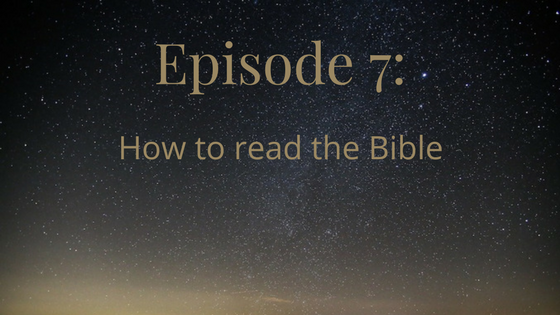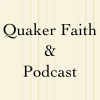How to read the Bible

As part 3 in our series about the Scriptures/the Bible, we’re talking about how to read the Bible.
A lot of people (*cough* both of us), when they decide to try reading the Bible try to do it cover to cover, and it’s a real slog. We both think for Jesus-oriented folks, starting with the four gospels is the way to go, then the rest of the New Testament, before doubling back to the Old Testament. There are lots of Bible reading plans out there. We both recommend the Bible app (works on every mobile OS we’ve heard of) for keeping track of a reading habit. Mackenzie started with the Gospels in 30 Days plan, followed by Acts & Epistles (85 days). That app has a bunch of other, more devotional or topical plans.
Reading? Listening!
Listening to the Bible is also nice. Micah has found that listening to the Gospel of Mark is a healthier practice for him than listening to political news. Mackenzie (who works for a newspaper and is inundated with it) concurs. Listening is the historically common way to experience the gospels. In the days before movies…and literacy…the household would gather to hear a reading or recitation of one of the gospels. Apparently one of these days Mackenzie will end up in Micah’s living room with a bunch of his friends to hear the Gospel of Mark read aloud. Mark is the shortest of the four gospels.
Listening is also how many people in general learn some familiarity with the Bible. Mackenzie grew up Catholic, hearing a little bit of the Bible each week from the lectionary. “How to read the Bible” wasn’t really a common topic, since there was a weekly (or twice weekly, between weekly-at-school and weekly-on-Sunday) listening session.
Group Bible reading
The book also talks about unprogrammed Bible reading, or Bible reading “in the manner of Conservative Friends.” This means sharing a bit from the Bible as led, without discussion or analysis. Micah and Mackenzie have both done this when visiting Quakers in Ohio. Now, Mackenzie’s Meeting does it on Wednesday evenings. It can be a very powerful experience.
This is a stark contrast to Bible study, where individuals or groups answer a set of pre-arranged questions. That’s not to say Bible study isn’t useful! Just different.
Family reading
No reason to leave the kids out of Bible reading. Some people (possibly more in the past than now) make a habit of reading the Bible at home with their kids each evening before bed. Quakers might add in a period of waiting worship. Meeting is a muscle! If you don’t practice waiting worship regularly, it’s a lot harder to do, so getting the kids used to it can make Sundays easier.
Translations
For getting started, we like The Message. It’s an informal, modern paraphrased version. It can feel really weird if you’re used to a more standard translation. Mackenzie switched to the New International Version (NIV) after using The Message for a while.
On note of translations (and not mentioned in the episode because Mackenzie forgot), using multiple translations can be helpful. There’s a Greek word (dikaiosune) that is commonly translated “justice” in Catholic translations and “righteousness” in Protestant ones. For example:
Seek ye therefore first the kingdom of God, and his justice, and all these things shall be added unto you.
Meta
We might go off-book next episode. We’ve had some listener requests. We might use next episode to finish out this segment on the Bible, and then go off-book. We’ll see.
References
- Friendly Bible Study from Friends General Conference (association of Liberal Quaker meetings in the US)
- Illuminate Bible Study from Barclay Press
- 2 Feminists Annotate the Bible
- YouVersion’s Bible app
- Revised Common Lectionary
- My Name is Legion by Michael Willett Newheart
- Word and Soul by Michael Willett Newheart
- AC/DC
- Face to Face: Early Quaker Encounters with the Bible
When it comes to how to read the Bible, what are your favorites? What’s your favorite book or story?
Podcast: Play in new window | Download
Subscribe: Apple Podcasts | Email | RSS
